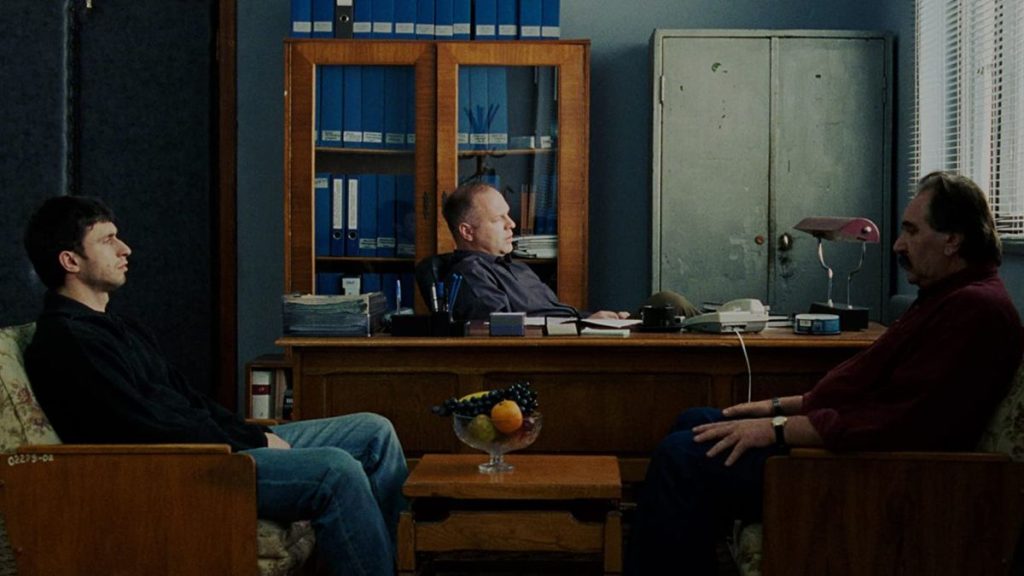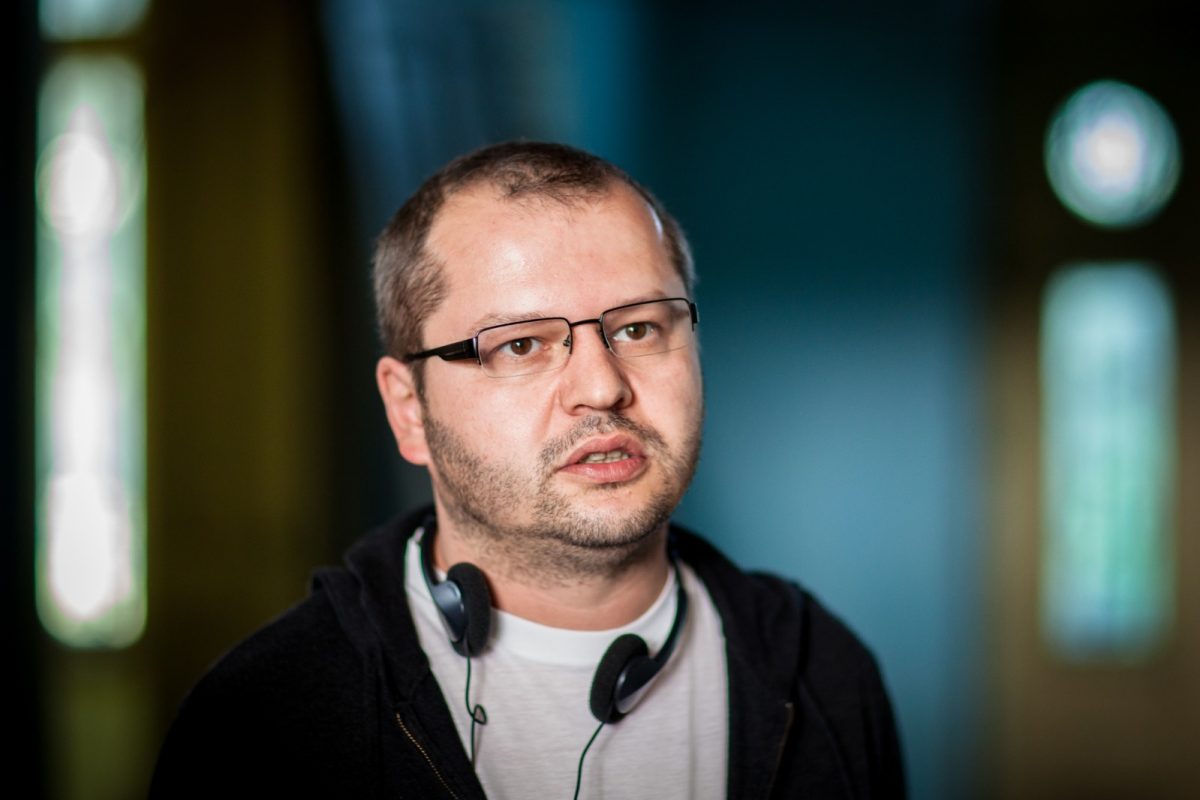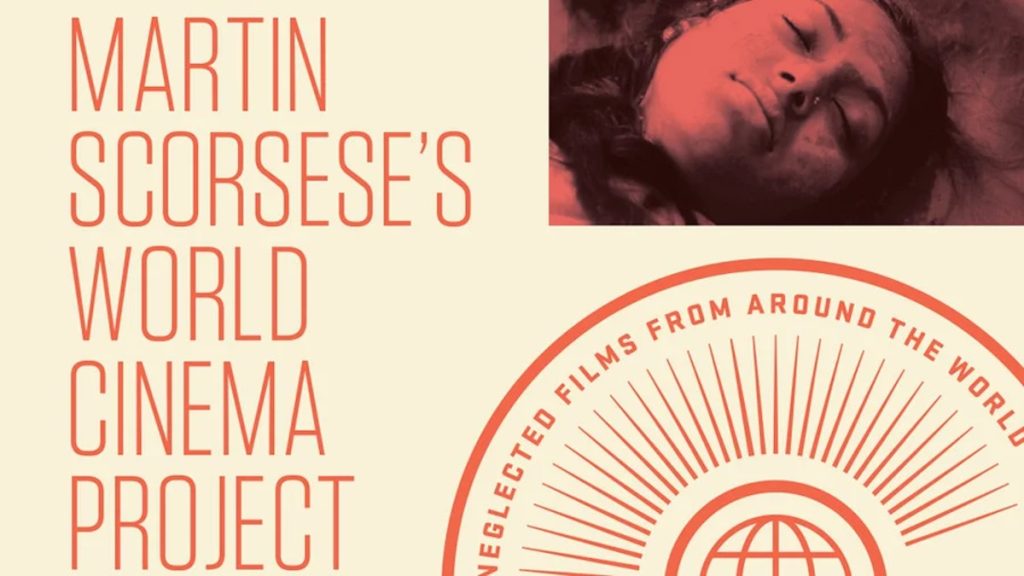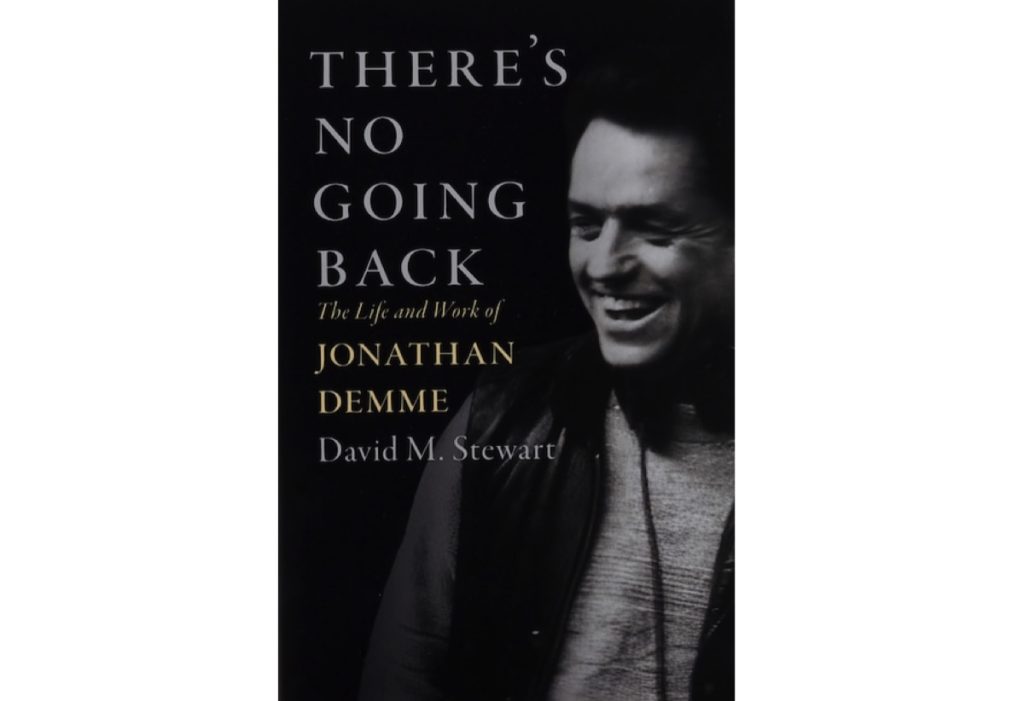Vaslui-born Romanian writer and director Corneliu Porumboiu kicked off his features career with his successful debut, 12:08 East of Bucharest (2006), which collected the Camera d’Or for Best First Feature at Cannes. Over his nearly 20-year career, he can be counted among the ranks of such Romanian New Wave filmmakers as Cristi Puiu, Cristian Mungiu, and Radu Jude. His multifaceted oeuvre has most recently been celebrated at the 56th edition of the renowned Swiss documentary festival Visions du Réel in Nyon, where the filmmaker was a special guest. There, the director also gave a three-hour masterclass on his work, which has spanned the spectrum of fiction, nonfiction, and everything in between, making him a unique case study for an event that has continued to champion documentary work as a flexible, ever-evolving medium not bound by conventions of a certain form.
One of the most thought-provoking aspects of his repertoire can perhaps be seen as his move toward more popular and genre elements—nothing new, of course, among filmmakers, with many looking to experiment with a particular style, or to use motifs that span beyond the bounds of any style. However, six years since his last feature, his deliberate choice to enter the neo-noir space has stuck out as an exemplar within his peers as a form of genre cinema with a twist, even while continuing to comment on social spheres, particularly within Romania.
Beginning with his sophomore feature, the 2009 work Police, Adjective (which won the Jury Award in the Cannes Un Certain Regard strand), three of Porumboiu’s films flirt most heavily with traditions of genre cinema. This particular turn revved up in part through The Treasure (2015), which began as a documentary project and was based on a real-life story from a friend about what might happen if he found treasure buried by his ancestors hidden during the country’s Communist period. As mentioned previously, the genre line of prompting is undoubtedly most prominent in The Whistlers (2019), which competed in Cannes’ Official Competition and has been widely described as a neo-noir thriller.
Police, Adjective is not what one might expect when describing a so-called genre film, but Porumboiu picks up elements that drive forward more standard-conforming thrillers and toys with its pacing. Our protagonist Cristi is a police officer tasked with tailing a teen boy suspected of dealing weed, and he spends much of the first half wordlessly following the teen from a casual distance—and us along with him. Stripping away any excitement from the possibility of detective work, Porumboiu transforms it into an arduous and functionally useless set of tasks that encourages viewers to reconsider police on film. (Are stakeouts really this “boring,” for instance?)

This slow and nearly meditative tone is reminiscent of that of Jonathan Millet’s slightly tenser Ghost Trail, whose quiet main character—a Syrian man on the hunt for his suspected former torturer—is on a similar mission of stalking his prey, waiting for him to slip up. Porumboiu subverts convention by utilizing long and static shots, allowing us into Cristi’s home environment, where he’s verbally out-maneuvered by his more intellectually introspective wife. This later develops into what the title is referring to, a 15-minute long scene in which Cristi engages in a debate with his superior over the ethics of a sting operation to catch the teen suspect, just as his superior forces him to read out entries from a dictionary. With this, Porumboiu moves from marginal thriller territory into philosophical musing, even as he emulates the pieces of an interrogation—but instead, police to police.
Throughout most of his works, and these three in particular, Porumboiu incorporates police as characters, marking the filmmaker’s interest in examining an interplay between state authority and everyday life. The director’s turn has moved from examining the morality and futility of the police within a preordained, hierarchical system in Police, Adjective, into sizing up the heavy-handed bureaucracy of the police and the state in The Treasure, and finally to playing off of a sort of circularity to police corruption in The Whistlers. This could be seen as the director’s reinterpretation of the authorities in context, where they operate within a gray zone that doesn’t hail them either as heroes or villains, just as they might be more clear-cut in a conventional genre story. His affection for the trope recontextualizes the police force as an institution, whereas genre films are often more focused on the procedural elements of investigations, or the thrilling aspects of the cinematically depicted daily job.
The Whistlers is typically read as a loose sequel to Police, Adjective, referring to the events of the latter and featuring a crooked police officer with the same name, albeit older. Porumboiu himself has spoken about drawing from traditions of classical Hollywood neo-noirs, but he also incorporates short sequences with mild action elements, including the typical armed stand-offs and police shoot-outs. He furthermore peppers in a cast of characters that could be pulled from any neo-noir: a multilingual femme fatale who’s the partner of a corrupt businessman, foreign thugs, and drug smugglers. However, he once again plays with a twist by setting it not in the usual grimy urban setting, but bringing us instead to an exotic location: the exceedingly less believable but equally intriguing Spanish Canary Island of La Gomera, which plays host to the (real-life, but dramatized) “whistled language” that becomes the set piece. Porumboiu dramatizes the language known as Silbo Gomero, a real-life form of communication in the islands composed entirely of whistled sounds allowing inhabitants to communicate across great distances, into a fully fledged language. In The Whistlers, his characters rapidly pick up the language with such a wide set of vocabulary that is almost too fantastical to be true, but just conceivable enough to be accepted, contributing to the film’s genre feel.
Porumboiu’s intermediary work is ultimately the odder but just as clever sibling to these three. The Treasure ultimately has many ingredients of a heist or crime caper, but he takes these elements and turns them into what he has considered to be a modern fable by drawing back the pace and finding an incredible amount of comedic value in mundane moments. With an extremely dry and ironic sense of humor, he crafts a heist where the prize isn’t guaranteed, and most of the component steps are accomplished in a haphazard way with grand ambition and little preparation. Nonetheless, the filmmaker plays along with the usual steps of gathering the team: in desperate need of money, neighbor Adrian recruits Costi to look for his grandfather’s mysterious buried treasure, while Costi is tasked with finding someone with a metal detector who can help them on the technical side. Cornel, the man who eventually brings the metal detectors, seems to be all but a bumbling fool—or perhaps simply just a working-class man pulled into the scheme.
Porumboiu shows audiences that gripping social commentaries can also be cultivated with the elements of, or inspired by traditions from, the genre umbrella: those with more standard tropes, and those marketed toward a more popular audience. The Romanian director’s sensibilities around social satire were first crafted in 12:08 East of Bucharest, and those impulses never truly disappear, but they have further evolved into new and intriguing forms, best epitomized by his most recent film. But naturally, every label is fluid, and the Romanian director has continued to demonstrate this to us in a unique way.



